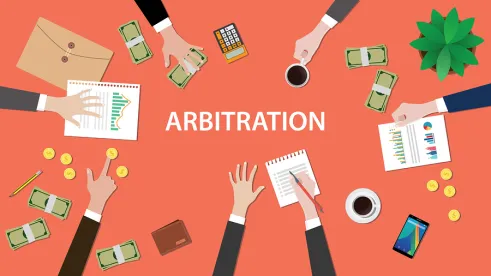The American Arbitration Association (AAA) significantly altered its rules for multiemployer pension plan arbitrations after the Pension Benefit Guaranty Board (PBGC) and several public comments raised concerns about the fairness of recent fee increases. The AAA amended its proposed rules and submitted an application for approval of its amended rules. The PBGC published a Notice of Approval of the AAA’s request on Tuesday, December 10.
The amended rules (1) provide some welcome relief to employers who wish to challenge withdrawal liability assessments and (2) set forth a much more equal burden to arbitrate assessments between multiemployer plans and employers. Specifically, the new rules are changed in three ways:
-
The AAA lowered the fees required to initiate arbitration by tens of thousands of dollars
-
Both parties now must share the fees equally
-
Either party may object to an arbitrator within 10 days of appointment.
Many multiemployer plans mandate the use of AAA and its arbitration rules if an employer wants to challenge any aspect of the assessment of withdrawal liability. Failure of an employer to follow these rules and pay the required fee has stopped the employer from being able to prosecute its dispute with the plan.1 In most withdrawal liability arbitrations, the AAA provides a panel list of arbitrators (as qualified by AAA) to the parties, chooses the acceptable (if there is one) arbitrator or appoints one, and assists with initial teleconferences between the parties and the arbitrator. It is rare that AAA provides any more material services to the parties during the arbitration process.
New Fee Structure
In 2013 the AAA implemented a new fee structure for withdrawal liability arbitrations that set fees based on the amount in dispute. Fees range from a minimum of $1,550 to $11,200 for cases with less than $1 million in dispute to a maximum $77,500 for disputes above $5 million. In contrast, the previous filing fee was $650 for most arbitrations. Because of the ever-increasing withdrawal liability assessments due to vastly underfunded plans (and often due to the use of artificially low interest rate assumptions), frequently the fees required to initiate arbitration generally would be in the tens of thousands of dollars and had to be paid by the employer before an arbitrator was even selected. This significant fee increase created another hurdle for employers, particularly for small employers, to exercise their rights to challenge any aspect of a plan’s determinations or calculations.
Recognizing that such fees are not necessary to support the administrative function that the AAA serves, the PBGC asked the AAA to amend the fee schedule to reflect more reasonable increases over the old fees. The AAA responded with initiation fees that range from $2,500 to $5,000, depending on the amount in dispute. Additional fees may apply as well, such as fees for matters that are held in abeyance over one year ($300) and if hearings are rescheduled ($150). Regardless, the amended fee schedule is far more reasonable and more accurately reflects the administrative costs of arbitrations.
Splitting Fees
In addition, the AAA has relieved the burden on employers significantly by requiring the parties to split the AAA’s fees. Under the old rules, the initiating party had to bear the full cost of initiating the arbitration and associated fees imposed by the AAA without the opportunity for reimbursement. As several commenters pointed out, this was unfair as employers almost exclusively bore the AAA administrative costs because ERISA mandates arbitration to resolve withdrawal liability, without which the multiemployer plan’s determinations become fixed.
Under the new rules, the employer must pay the fees to initiate arbitration, but arbitrators are directed to apportion fees evenly in awards (unless the arbitrator determines otherwise). This not only follows the “pay first, dispute later” scheme set forth for withdrawal liability in ERISA but also reflects the requirement that arbitration costs be borne equally.
Selection of Arbitrator
The PBGC also raised concerns with the AAA’s process for selecting arbitrators under its old rules. Under the old rules, the AAA would unilaterally select an arbitrator if the parties could not agree on one. The PBGC believed that this compromises the mutual selection required by its regulations. In response, the AAA amended the rules to allow either party to challenge the selection of an arbitrator within 10 days of his or her appointment.
Conclusion
In a climate where withdrawal liability assessments commonly run into the tens of millions of dollars even for small employers, the AAA’s new rules level the playing field between employers and multiemployer plans. The new rules set forth fees that reasonably reflect the cost of administering arbitrations, require the burden of administration costs to be shared and allow both parties to object to the appointment of an arbitrator.




 />i
/>i
